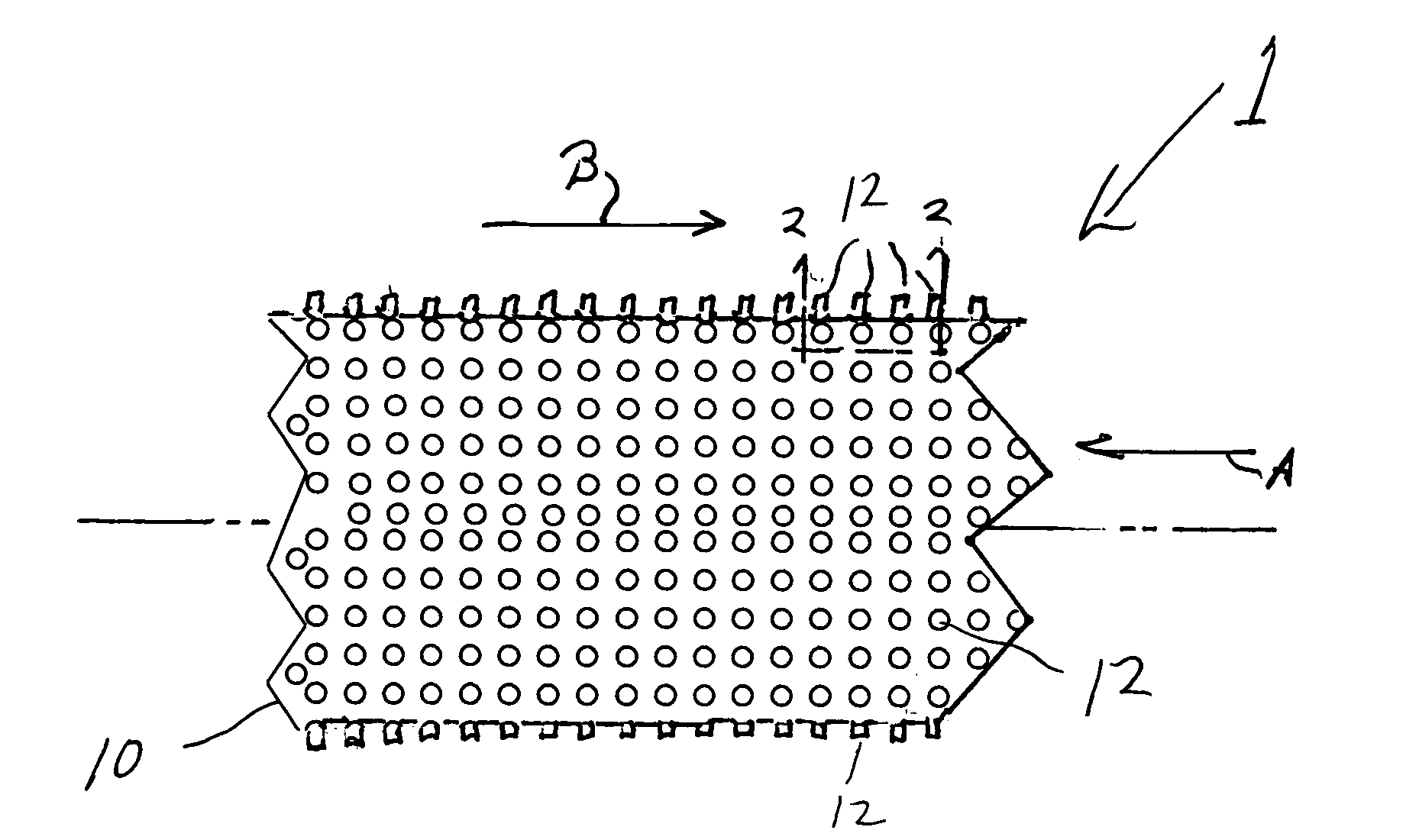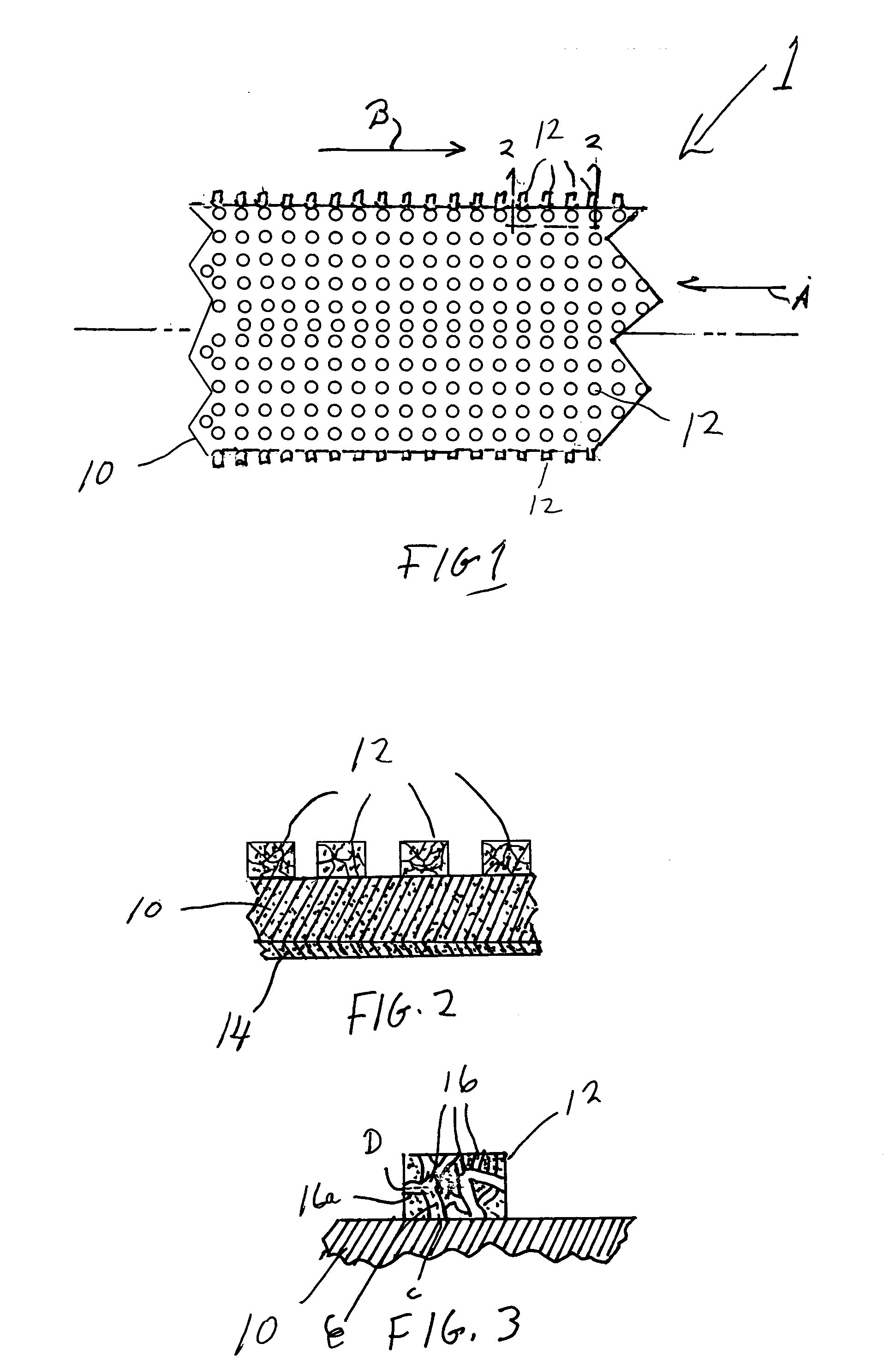Separation and reaction method utilizing an oxygen ion transport element
a technology of oxygen ions and transport elements, which is applied in the direction of membranes, separation processes, instruments, etc., can solve the problems that the oxygen ion transport membrane element is not particularly durable in service, and achieve the effect of enhancing the formation of oxygen ions
- Summary
- Abstract
- Description
- Claims
- Application Information
AI Technical Summary
Benefits of technology
Problems solved by technology
Method used
Image
Examples
Embodiment Construction
[0023] With reference to FIGS. 1 and 2 an oxygen ion transport membrane element 1 in accordance with the present invention is illustrated. Oxygen ion transport membrane element 1 is in the form of a tube, but, as well understood by those skilled in the art, could take other forms such as a flat plate.
[0024] Oxygen transport membrane element 1 has a dense layer 10 and a discontinuous porous layer made up of repeating cylindrical projections 12 connected to and in contact with dense layer 10. An optional surface enhancement layer 14 can also be provided in contact with dense layer 10 and opposite to the repeating cylindrical projections 12. Surface enhancement layer 14 is said to be optional in that in an embodiment of the present invention, such layer could be deleted. Although repeating cylindrical projections 12 are shown on the outer surface of the tubular form and the surface enhancement layer 14 is on the inner surface of such form, the placement of the same could be reversed. ...
PUM
| Property | Measurement | Unit |
|---|---|---|
| thickness | aaaaa | aaaaa |
| thickness | aaaaa | aaaaa |
| porosity | aaaaa | aaaaa |
Abstract
Description
Claims
Application Information
 Login to View More
Login to View More - R&D
- Intellectual Property
- Life Sciences
- Materials
- Tech Scout
- Unparalleled Data Quality
- Higher Quality Content
- 60% Fewer Hallucinations
Browse by: Latest US Patents, China's latest patents, Technical Efficacy Thesaurus, Application Domain, Technology Topic, Popular Technical Reports.
© 2025 PatSnap. All rights reserved.Legal|Privacy policy|Modern Slavery Act Transparency Statement|Sitemap|About US| Contact US: help@patsnap.com


